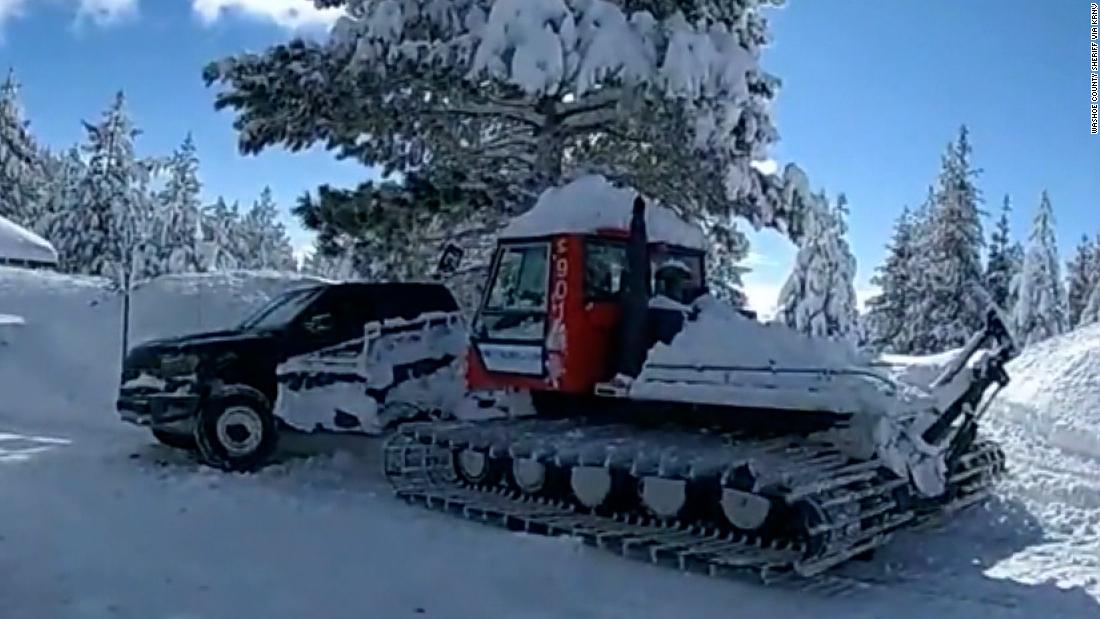BRITISH troops were warned “If you sweat, you die” as NATO soldiers braved extreme cold in Finnish fighting simulations.
Artillery squaddies revealed how they coped living in outdoor tents in -8c conditions during the alliance’s biggest-ever artillery drill in Lapland, North Finland.
Doug SeeburgBritish and NATO allies took part in live fire exercises using the new Archer heavy artillery gun, Finnish K9 system and French Caesar howitzer, pictured, in -8c conditions[/caption]
Doug SeeburgSpecialist troops practised staying outdoors for three days while tucked behind enemy lines in intense no-man’s land drills[/caption]
Doug SeeburgFrench soldiers with the Caesar howitzer[/caption]
Doug SeeburgComms Sergeant Ian Bloomfield said his colleagues were ‘the only ones’ allowed to stay out overnight in the Finnish winter[/caption]
It came as specialist troops practised staying outdoors for three days while tucked behind enemy lines in intense no-man’s land drills.
Comms Sergeant Ian Bloomfield, of covert surveillance unit 4/73 Battery 5 Royal Artillery, said his colleagues were “the only ones” allowed to stay out overnight in the Finnish winter.
He told The Sun: “They go out in four to six-man patrols beyond the front line, looking for enemy targets and providing information from the battlefield back to the commanders.
“They also have the ability, once they’re out there, to do joint fires.
“So they put artillery or fixed wing or rotary assets onto those targets.
“Most have guys that do the same job, but our guys specialise in doing it a long way into enemy territory.
“Our guys work solely on foot. They get dropped off, they carry ridiculously heavy [bags], out into the sticks.
“They’re very good at covering up their own ‘ground sign’ – the marks they leave in the environment. Obviously in the snow that’s really difficult to achieve.”
The Sergeant, who lit a fire in his pop-up tent housing Brit troops for NATO’s Dynamic Front drill, went on: “The Finns are the cold weather specialists. This is their environment, they’re used to this and the challenges that this brings.
“Our guys are very good at doing a long time on the ground, but in the UK that’s a lot easier.
“Out here, if you’re static for more than an hour, it’s a different kind of cold.
“The -2C, -3C you get in Wales is very different to the -2C or -3C you get here. It chills you to the bone.”
Brigadier Rob Alston revealed some Army units had been given training by the Royal Marines to cope with below-freezing chills.
He added: “The troops have got all the cold weather gear that they need to keep warm, whether that’s tents or the additional personnel and personal equipment, and they’re really enjoying getting to use it and understanding how to fight in this environment.”
He added: “It’s important for us to be able to train alongside them and to understand what we would need to do if we came here to support Finland, to deter and to defend.”
Col. Pete Winton added that “shoot and scoot” tactics – firing from one location before quickly moving on – were part of the learning for a “return to war fighting”.
He added: “It’s got to be moved in order to survive.
”The days of seeing a line of guns sat on a single position for hours on end, that’s a vulnerable target.
”We can’t be doing that. We’ve got to fire and move. That’s the mindset we’ve got to get into.”
Doug SeeburgFinnish company commander Olli Taskinen warned ‘if you sweat, you die’ in the freezing conditions[/caption]
Doug SeeburgNATO troops have also battled occasional wayward GPS readings among the millions of trees that line the dense forests[/caption]
Doug SeeburgThe temperatures are just one of a number of challenges sprung up by Finland’s freezing, sprawling wilderness[/caption]
Earlier, Finnish company commander Olli Taskinen warned the cold weather along Finland’s border with Russia could be more of a threat than enemy troops.
He revealed: “The cold conditions are very challenging during combat. If you sweat, you die.
“There are so many ways it can go wrong… it’s why it’s so important for our partners to learn how to fight here on this type of terrain.
“You’ve probably heard of the Winter War in the 1940s. They weren’t trained on how to fight in the cold conditions, so the biggest enemy for (the Soviet Union) was the frozen conditions.”
“We have been teaching tricks to keep warm — change socks, don’t take guns inside.”
The temperatures are just one of a number of challenges sprung up by Finland’s freezing, sprawling wilderness.
NATO troops have also battled occasional wayward GPS readings among the millions of trees that line the dense forests in Santa’s home region.
Soldiers would typically use a manual compass to find their location as a backup, but the concentration of natural iron in the ground is interfering with the pin-pointer’s magnets.
Instead, foreign forces, including Brits, are being trained by native specialists to orientate through the woodlands ground using nature alone.
AFPAn Archer Artillery System of the British armed forces’ 19th Regiment Royal Artillery is pictured[/caption]
Doug SeeburgFinnish soldier Sgt Antti-Matti Puisto[/caption]
Doug SeeburgThe Sun’s Thomas Godfrey with the Archer howitzer[/caption] Published: [#item_custom_pubDate]















































































































